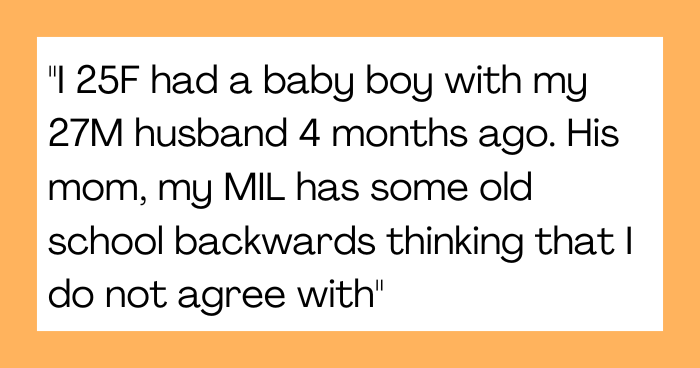MIL Crosses Boundaries: Am I Wrong for Demanding Cameras to Protect My Baby?
A new mother never expected her mother-in-law (MIL) to prove so untrustworthy when she gave the 25-year-old pediatric nurse her baby for a moment. The MIL went on to covertly feed the babe a bottle filled with Froot Loops powder, despite being firmly instructed not to change the infant’s diet. That brave act of defiance ignited a massive war, so much so that the mother decreed that the MIL was no longer welcome in her home unless there were strict repercussions — such as getting cameras installed upon her return.
The fallout has turned the family against one another with the MIL accusing the mother of being controlling and some family members downplaying the seriousness of her actions as the ‘the baby is fine’. It’s a story about boundaries, the complexities of caregiving trust, and an awful family with an emphasis on accepting that all you can do is control yourself while making sure a kid stays safe.
The last thing parents need is someone undermining their decisions and adding unnecessary stress

So when this woman felt like her mother-in-law was disrespecting her, she addressed the situation head-on
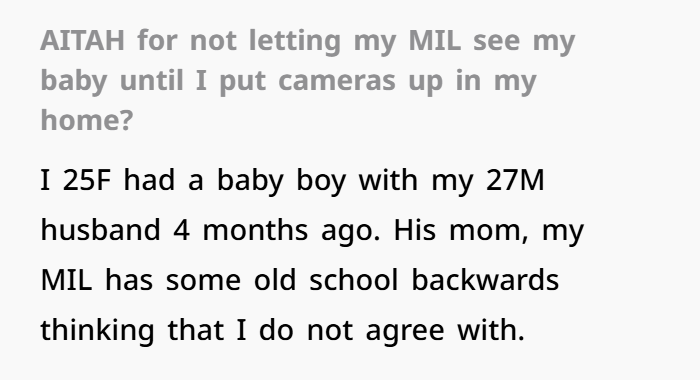
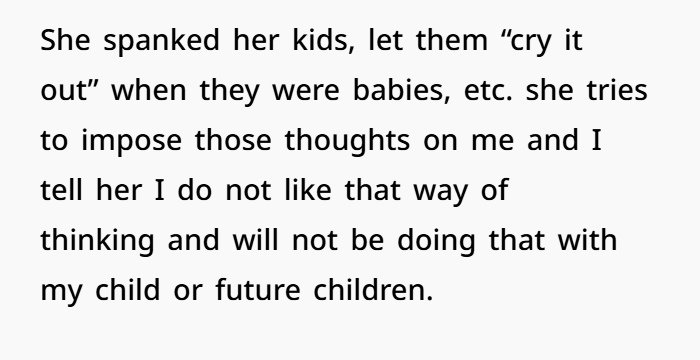
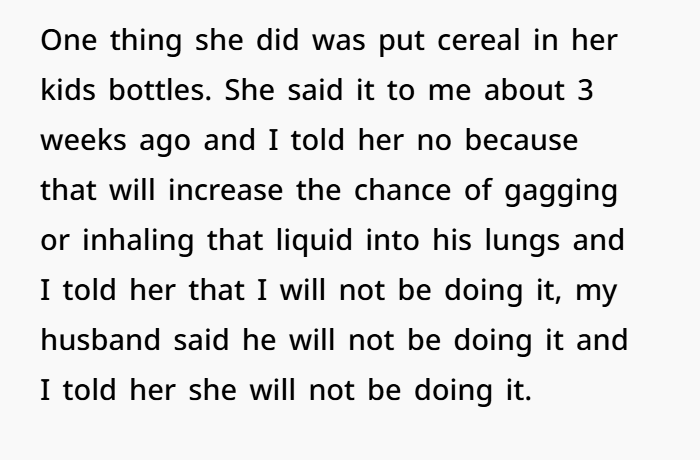
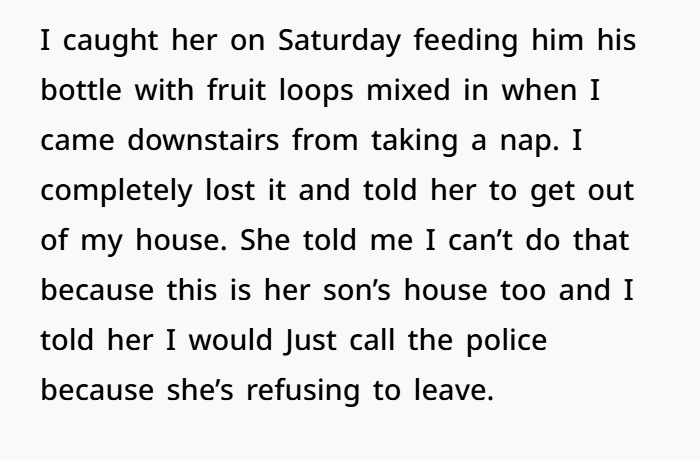

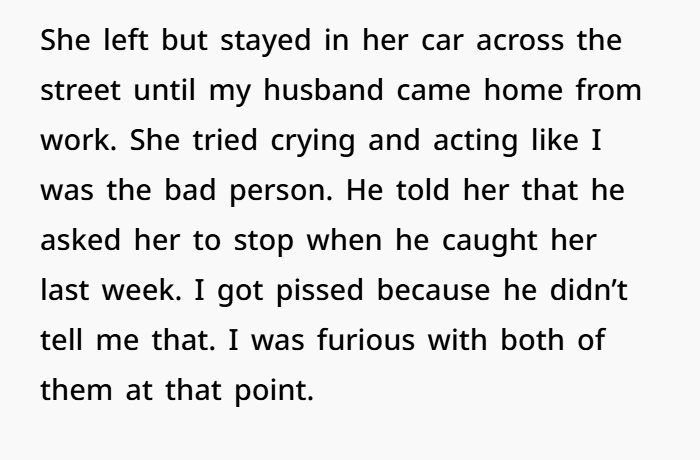
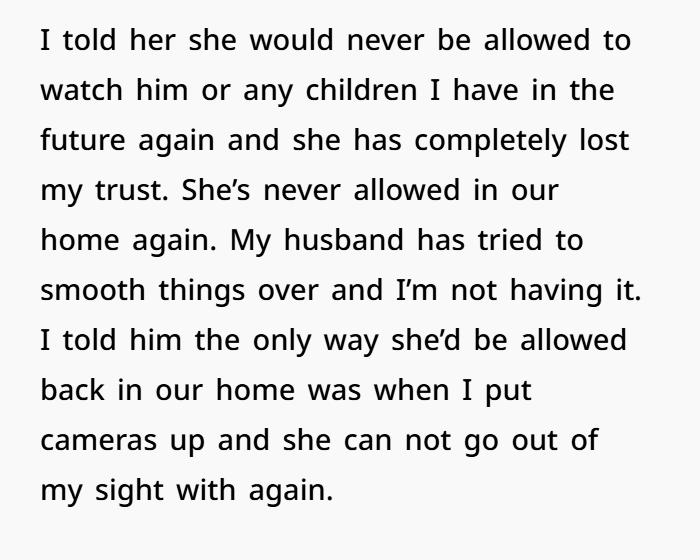
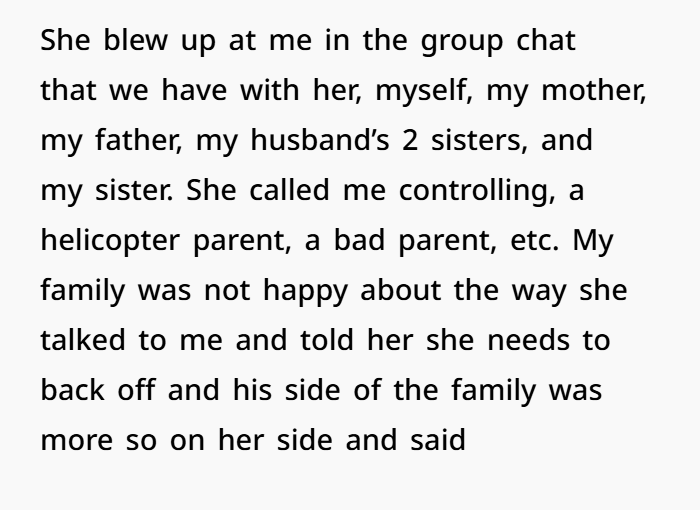
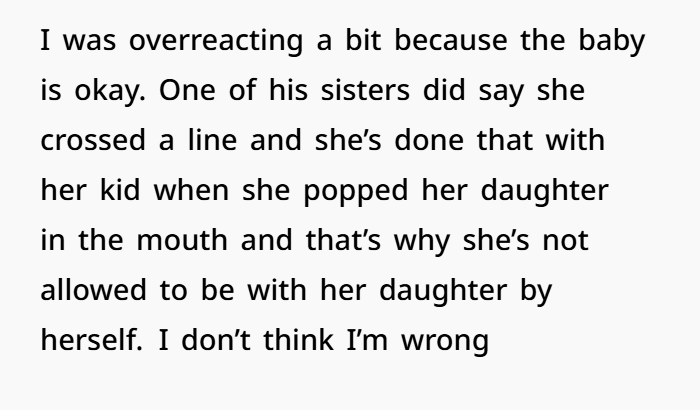

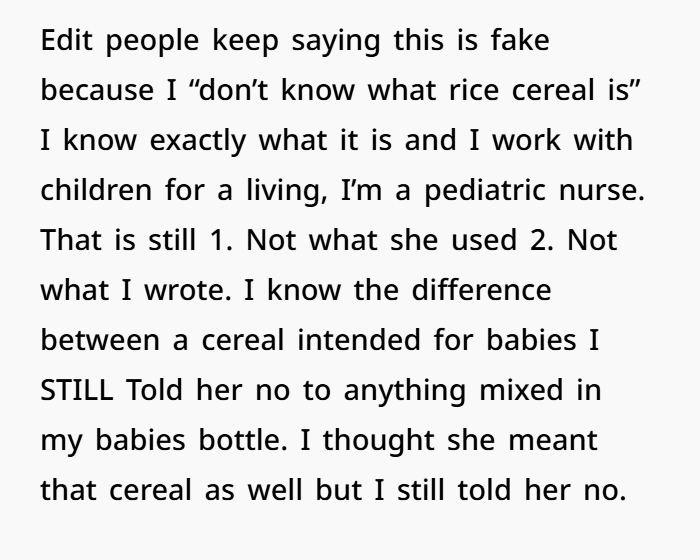
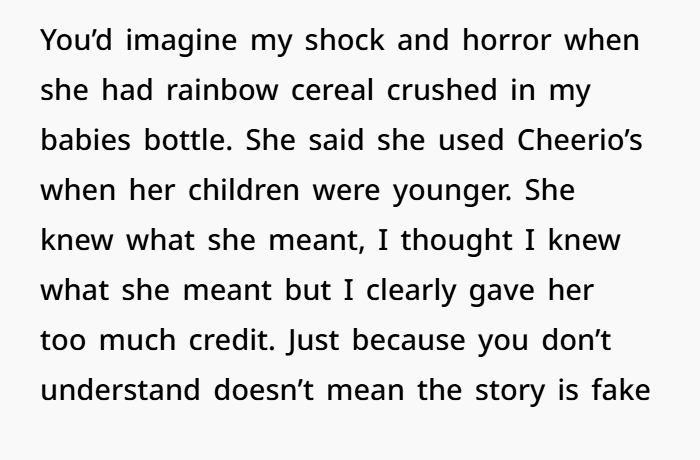

Boundaries, Safety, and Navigating Toxic Family Dynamics
1. The Importance of Parental Boundaries
How a child is brought up is extremely personal, and every parent is entitled to be out of bounds. The American Academy of Pediatrics (AAP) warns against putting anything in a baby bottle, including cereal, due to a higher risk of choking, as well as aspiration. These were not random preferences — the mom had medical knowledge that guided her concerns. It was not as if we had been having differing opinions—it was a blatant violation of the baby and parents!
This incident is indicative of a wider truth that any caregiver must honour and respect: that parents are the boss. Otherwise, this can lead the children to dangerous situations and loss of trust in family.
2. MIL’s Actions as a Breach of Trust
However, adjusting a baby diet, we come to agree, is bad advice bordering on the undermining of parental authority — especially when one has given explicit instructions. Research on family dynamics, such as that published by the Journal of Family Psychology, demonstrates that disagreement with extended family members regarding parenting choices results in strife and enduring conflict. Trust is the bedrock of both caregiving, and once breached, it becomes nearly impossible to rebuild.
The MIL is a classic case of toxic family dynamics, where one member controls another member with manipulative/semi-diagnosable language or acts as if the boundaries setare non-refundable. Through refusing to pack up the house and worsening events in the family group chat, she is so determined to not take any responsibility that she actually pushes the mother further away.
3. Why Installing Cameras Isn’t Overreacting
It is also not controlling — it is a fact of life. Surveillance Cameras Are About Transparency and Peace of Mind Installing cameras, especially in common areas, is not just about surveillance. It is about accountability and peace of mind. As per a report by SafeHome. According to data shared with Businesstheetrepreneur, the proportion of parents using home cameras increased to 67% from 83% in 2016, who said they do so when relying on babysitters, family or other caregivers and do so primarily out of safety concerns.
Taking precautionary measures (such as cameras) is justifiable considering the MIL has shown herself to be rule-breaking in the past (not just with this occurrence, but with various other family members). With that, we send a very strong message: no actions, no trust.
4. Handling Toxic Family Dynamics
Family disputes are never easy, but they become so much more complicated when both sides of the family is in the mix. When the MIL exploded in the family group chat calling the mother a “controlling” parent, it is like a perfect case of emotional manipulation. Both of those statements were attempts by some relatives to tone down the situation by saying, “the baby is fine,” but toxic people often want support on the ground that their target’s feelings are not justified.
To address such dynamics:
- Set Clear Boundaries: Communicate non-negotiable rules to the entire family. For example, the MIL should not be left alone with the baby under any circumstances until trust is rebuilt.
- Avoid Escalation: While defending oneself is important, engaging in public arguments (e.g., group chats) can escalate tensions. It’s more effective to handle conflicts privately and with firm resolve.
- Seek Professional Guidance: Family therapy or mediation can provide tools for resolving conflicts and rebuilding trust—or determining when it’s time to cut ties.

5. Long-Term Implications for Parenting and Relationships
What I thought the real headline in the story should have been: Woman physically assaulted for trying to make sure her own child was safe and healthy, this time raising the question of how many parents maintain relationships with their extended family while trying to prioritize their child. When you allow toxic behaviors to continue unchecked then you are creating an unsafe and unhealthy environment for your child who could grow up experiencing what boundary violations look like or not feeling safe with certain family members.
One of the husbands sisters pointed out that the MIL has a history of stepping over lines like this even physically disciplining other grandchildren. That repeated behavior really emphasized why the problem needs to be addressed now, not just for the new little one but also for the next one.
As the story went viral, its author provided more information on the conflict in the comments
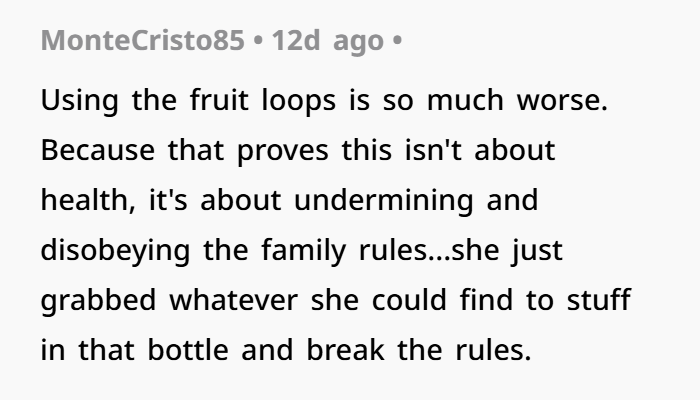
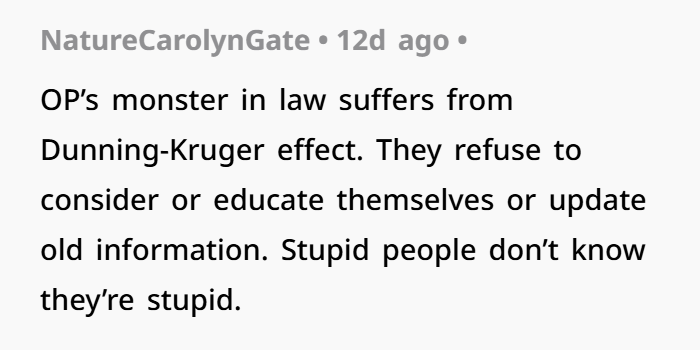

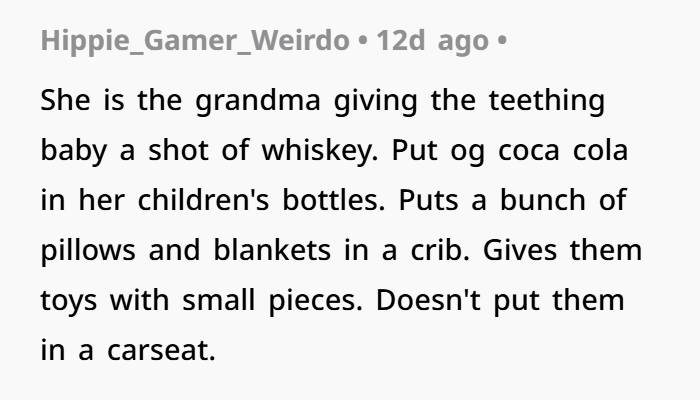
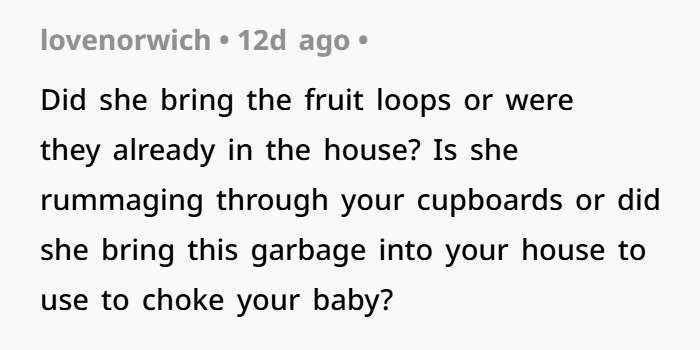

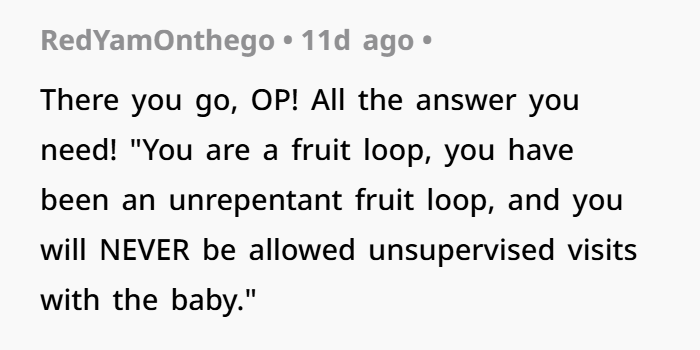

More than just a bottle of Froot Loops, this is about maintaining boundaries, keeping children safe, and untangling literal family trees. Her behaviour might sound extreme to some but this is part of her commitment for the safety and well-being of her baby. But in cases like these, it is best to proceed with caution than to cause more damage. Although time and accountability might make reconciliation possible, the mental and physical well-being of the child, along with the safety and trust of the home must come first.

